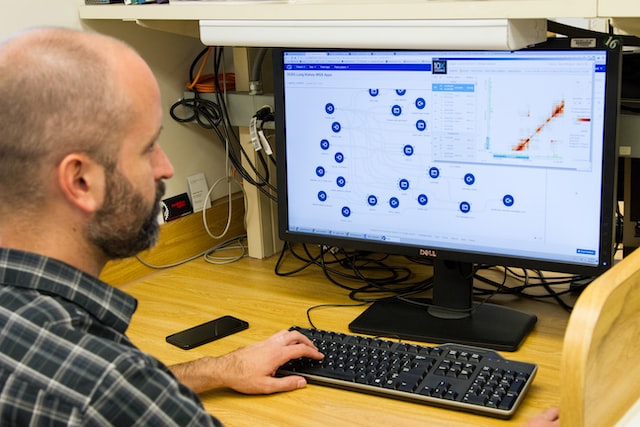Every company has to deal with a lot of information about their customers. Some companies have a simple spreadsheet to keep track of customer data, and some rely on a complex set-up with multiple data sources. It’s always ideal to have a 360-degree view of your customer data to make better business and marketing decisions. And if there’s one thing that will help you with this, it’s a customer data management system (CMS). No matter what type of customer data management system you have in place, it’s vital that you know when it’s time for an upgrade. Here are five signs that your current customer data management system isn’t cutting it anymore.
Table of Contents
1. Your data is siloed.
You may have a lot of data, but if it’s not in one place and accessible by your team, you will have a hard time accessing it. If the data is scattered across different systems, you face two problems: first, accessing the information will require more work from your team; secondly, integrating all that data can be difficult and time-consuming.
You should also consider whether or not you can keep your customer data up-to-date. If there are holes in your records or information gets lost over time (for example, due to an incomplete system), then this could spell trouble for any efforts going forward.
Rudderstack and Segment, two of the most popular solutions in the customer data management space, both offer integrations with Salesforce and other popular CRMs. This makes it easy to keep your customer data up-to-date. (For a detailed comparison of Rudderstack and Segment, check out this guide: https://www.rudderstack.com/rudderstack-vs-segment/).
2. You don’t have a single source of truth.
If you’re not using a single source of truth, then it can be challenging to keep your customer data up-to-date. This is because different teams will use different sources, making it impossible for anyone to know all the information about each customer.
The data in your customer information system should be stored in one place, not scattered over multiple databases. Data stored in different places creates the potential for errors and omissions, which can lead to lost sales, dissatisfied customers, and lost revenue.
A single source of truth is essential when considering any new customer data management system. A single source of truth helps ensure that your entire organization has access to accurate and complete customer information.
3. Your analytics are too rudimentary.
One of the most important things you can do with your customer data is analyze it, which requires a robust analytics tool.
The ability to analyze your data allows you to make better decisions because instead of guessing what’s happening with your customers, you have real insight into their behavior and preferences. With more accurate information, you can predict future trends and plan accordingly.
You also need a platform that helps make sense of all this information so that it’s helpful in decision-making. You want an easier way for employees across departments—from sales to marketing—to access and organize critical insights about customers. A good CRM solution will allow employees at every level to access their dashboards; these dashboards should provide critical insights into customer behaviors and easy access to relevant reports based on those behaviors.
4. Your reports take too long to generate.
You may not realize it, but your reports are taking longer and longer to generate. This is a massive problem for your organization.
The time spent on generating reports should be minimized as much as possible because it takes away from the time that could be spent on other vital tasks, such as making decisions based on the information in these reports.
You should also consider if your current customer data management system’s reports are too complicated or inaccurate when determining if you need a new customer data management system. It is important to note that to get accurate information from a report, you need an effective and efficient tool that provides access to clean data at all times so users can easily understand how their company is performing in various areas (sales performance, marketing ROI).
5. You can’t keep up with all the data that you’re collecting.
You may not have a comprehensive customer data management system (CDMS) yet, but if you are trying to keep up with all the data coming in from different sources and need to do more with it than just storing it, then you most likely need one.
It’s true that some companies don’t have CDMSs because their data isn’t valuable enough. But even if your customers aren’t worth much individually, collectively, they’re worth a lot, and what makes them valuable is their information about themselves – where they live, how old they are, what kind of job they have, who their friends are, and so on. That’s why CDM systems were created: They combine disparate pieces of information into a single place where marketers can use them everywhere to target precisely who needs which products/services and exactly when those people need them!
Conclusion
Armed with this information, you can feel more confident in your decision to invest in a customer data management system. Remember: Your company’s success depends on your ability to collect and analyze data. The more effectively you can do that, the better equipped you’ll be to make decisions about marketing campaigns, pricing strategies, product development—and much more.


